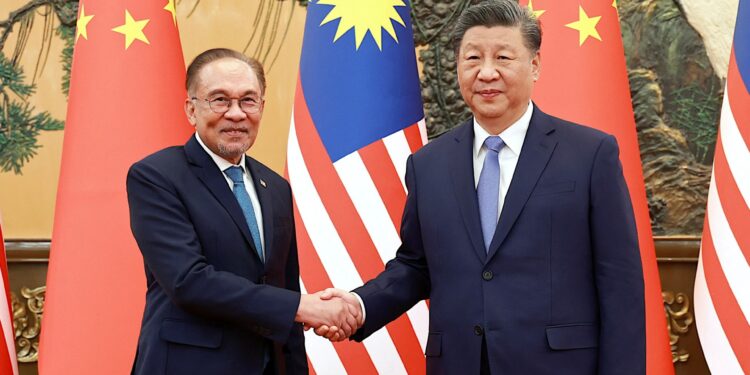Bloomberg said that Malaysia continues to provide a successful model of sustainable economic growth, as it showed remarkable resilience in achieving economic growth of 5.3% during the last quarter, outperforming China, which recorded growth of 4.6%.
Malaysia’s performance reflects its ability to maintain its economic stability and enhance consumer confidence, which makes it the focus of attention of neighboring countries and international investors.
Effective policies
Malaysia bases its success – according to Bloomberg – on a set of effective economic policies that have laid strong foundations for decades.
Among these policies, he attracted early foreign investment in the 1970s by establishing free trade zones, a move that preceded their implementation in China. The Asian country was able to attract international companies such as Intel Corp, making the state of Penang a hub for the technology industry in the region.
This approach, according to the agency, led to the expansion of successes to include other regions in the country, such as Kedah and Johor, where major companies such as Infinon Technologies have settled.
Monetary policy stability
Price stability contributed to enhancing consumer confidence and supporting domestic spending. Bloomberg notes that strong monetary policies and unconventional measures such as setting prices were the basis for this stability, which made Malaysia able to protect its citizens from market fluctuations.
For example, the Malaysian government provides subsidies for basic commodities such as fuel, sugar, and electricity, although this subsidy constitutes a burden on public finances.
At the same time, Malaysia is seeking to achieve a qualitative leap in the field of technology and artificial intelligence. Prime Minister Anwar Ibrahim, who is celebrating his two-year anniversary in office, launched a program to attract companies that provide high-income jobs and promote innovation.
Companies like Microsoft, Amazon and Google have answered this call, investing in the country’s technology infrastructure, making Malaysia a leader in the region.
Challenges
Despite these successes, Malaysia faces future challenges. Domestically, there are disputes with some local governments over gas revenues, while the gradual removal of fuel subsidies may have impacts on inflation and consumer confidence.
Internationally, the re-election of Donald Trump as President of the United States is viewed with concern due to unexpected economic policies that may affect the global economy.
However, Central Bank of Malaysia Governor Abdul Rashid Ghafoor asserts that Malaysia is ready to face these challenges from a “position of strength.” He added that the economy depends mainly on local demand and enjoys a great diversity of trading partners.
At the same time, the government aims to achieve growth of 5% annually in the coming years, an ambitious goal but supported by effective policies and long-term strategies, according to the agency.



